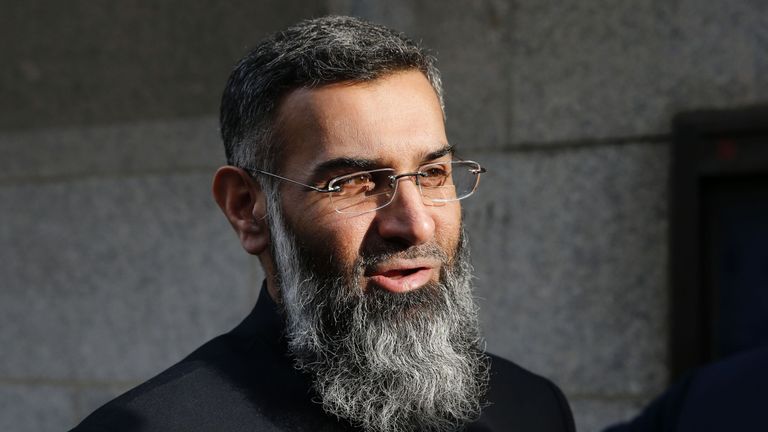London Bridge terror attack: Everything we know about terrorist Usman Khan
The London Bridge killer, Usman Khan, was a convicted terrorist who was released from prison less than 12 months ago.
The 28-year-old – who killed a man and a woman in his knife attack on Friday before being shot dead by police – had been living in Stafford, Staffordshire, following his release on licence in December 2018.
Following Friday’s attack, during which Khan wore a fake suicide vest, police have been searching a three-storey block of flats in Wolverhampton Road, Stafford, where he is believed to have lived.
In 2012, Khan pleaded guilty to preparing an act of terror; namely travelling to and attending operational meetings, fundraising for terrorist training, preparing to travel abroad and assisting others in travelling abroad.
After being put on trial along with eight others, a court heard how Khan was among a group who considered a range of terror activities.
They included the establishment of a terror-training school in Pakistan; the sending of letter bombs; attacking pubs used by far-right groups; attacking a high-profile target with an explosive device; and a “Mumbai-style” terror attack.
A hand-written target list found on a desk at one of the plotters’ homes included the names and addresses of the Dean of St Paul’s Cathedral in London, then-London mayor Boris Johnson, two rabbis, and the American Embassy in London.
The group – from Stoke-on-Trent and Cardiff – settled on two plans: to set up a training school in Pakistan disguised as a legitimate madrassa (an Islamic religious school); and to place a pipe bomb in the toilets of the London Stock Exchange.
The nine were also linked to radical preacher Anjem Choudary by a mobile phone seized from an address of one of the plotters, which contained material relating to protests by the banned al-Muhajiroun group that Choudary co-founded.
Sky News understands Khan was a personal friend and student of Choudary and was known to have attended a series of al-Muhajiroun protests and street stalls in the Midlands area prior to his arrest.
In the months before Khan’s arrest and conviction, police raided his home in Stoke-on-Trent, Staffordshire, over concerns about his links to Choudary.
Khan and an accomplice were said to be planning to attend the madrassa and were keen to perform terror acts in Kashmir, a disputed region divided between Pakistan and India.
After they and others they recruited had gained experienced, it was envisaged they would then return to the UK.
Then aged 20, Khan was secretly recorded talking about how there were only three possible outcomes for him and his fellow jihadists: victory, martyrdom or prison.
During a late-night meeting on 4 December 2010, Khan contrasted the action he was planning in support of jihad with the passive approach of those such as Choudary.
“Brothers like Anjem, they ain’t going nowhere,” he said.
Discussing terrorist fundraising, he said Muslims in Britain could earn in a day what people in Kashmir are paid in a month.
He added: “On jobseeker’s allowance we can earn that, never mind working for that.”
Khan said he could only see three results: “There’s victory, what we hope for, there’s shahada (death as martyrs), or there’s prison.”
Khan was said to have had a “serious long term attitude to establishing, funding and recruiting British Muslims to attend the madrassa and to then be available to commit terrorism abroad and at home”.
The London Stock Exchange plot was said to have been formed without direct contact or logistical support from Al Qaeda, but information provided online by the terror group was designed to be used by untrained people.
Khan pleaded guilty to a terror offence in relation to the madrassa plot and was subsequently sentenced to an indeterminate prison sentence – being detained for public protection – with a minimum term of eight years.
Passing sentence on 9 February 2012, the judge said this was a “serious, long-term venture in terrorism” that could also have resulted in atrocities in the UK.
However, in April 2013, judges at the Court of Appeal quashed Khan’s indeterminate sentence and instead set a fixed-term sentence of 16 years in prison, with a five-year extension period.
He was released at the halfway point of his 16-year term, including time spent on remand between the terror plot being foiled and his arrest, and his conviction.
Sky News has been told Khan was being monitored with an electronic tag when he was released from prison.
The Parole Board said it had “no involvement” with Khan’s release, adding he “appears to have been released automatically on licence (as required by law), without ever being referred to the Board”.
Source: Read Full Article




